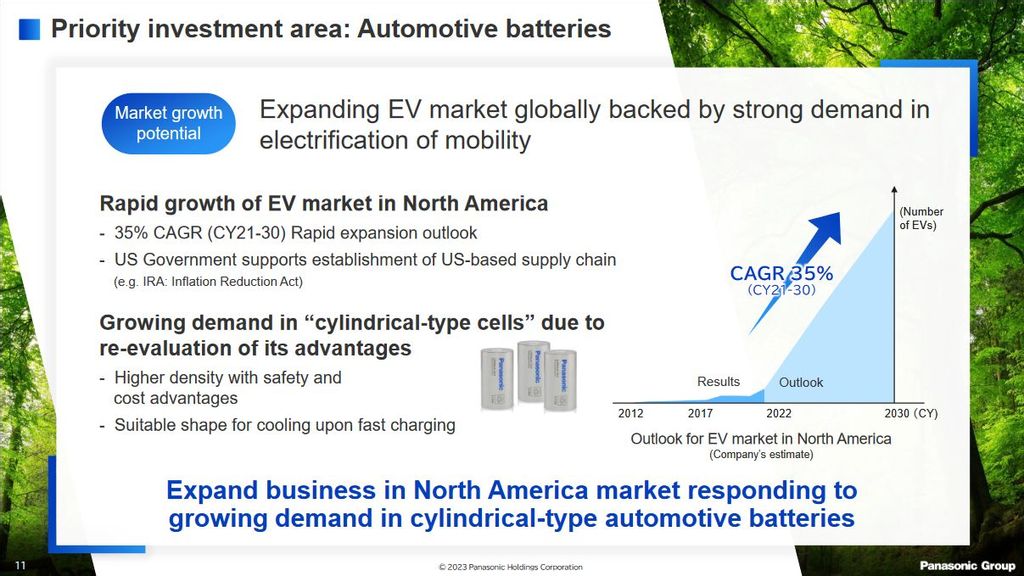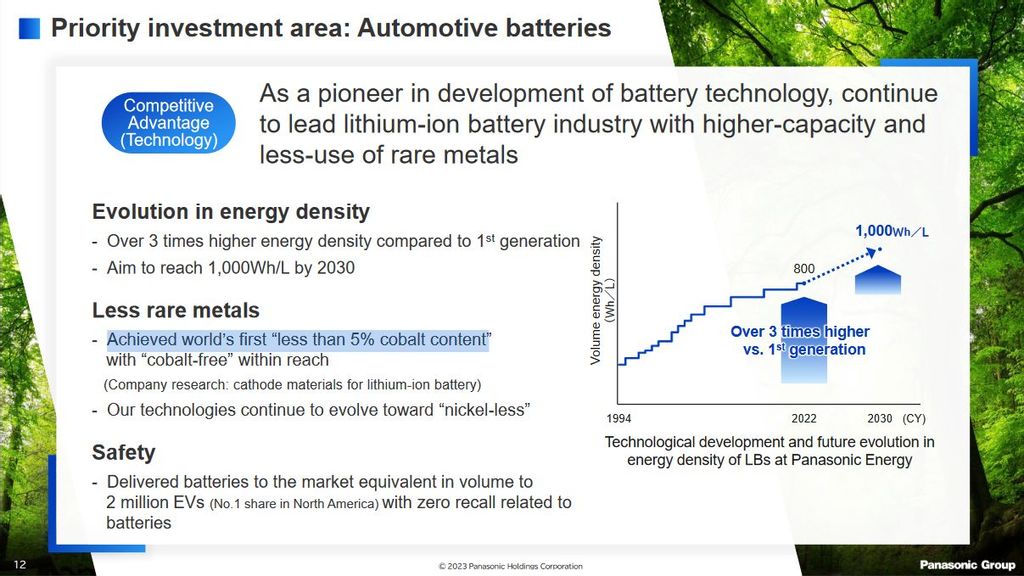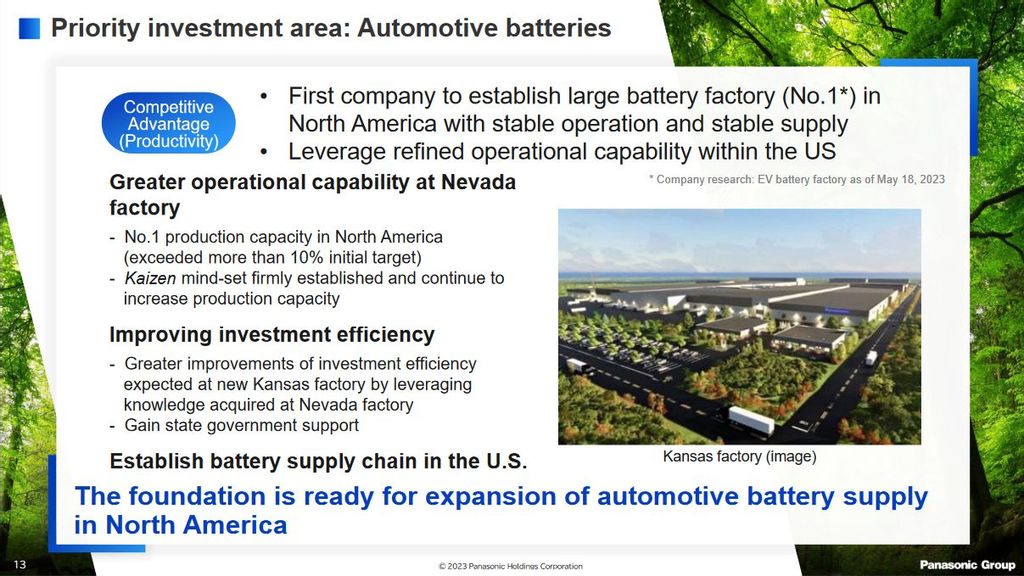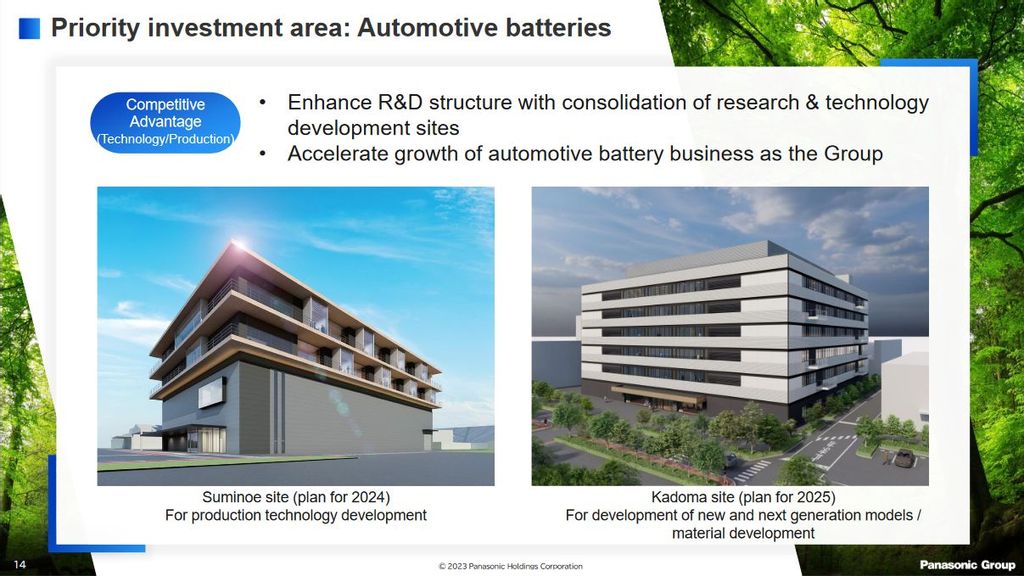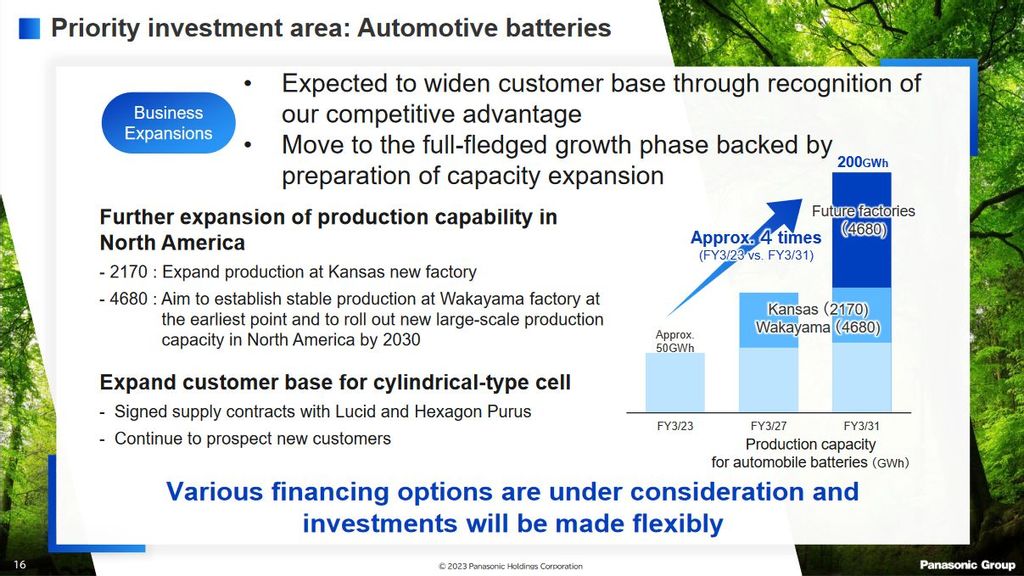During the Group Strategy Briefing on May 18, Panasonic Group CEO Yuki Kusumi announced that automotive batteries will be a priority investment area.
The Japanese manufacturer acknowledges strong demand for EV batteries (specifically for cylindrical-type cells) and high market growth potential, especially in North America.
It’s expected that the company will build a few new battery plants later this decade – at least two in North America.
Panasonic noted that its current generation of battery cells already has more than three times higher volumetric energy density (about 800 watt-hours per liter) than the first generation 30 years ago (in 1994). The goal by 2030 is to achieve 1,000 Wh/L.
Panasonic’s cathode chemistry was the first to achieve less than 5 percent cobalt content (among high-nickel NCA/NCM cathodes, as we understand) and according to Panasonic, a “cobalt free” cathode is within reach. Interestingly, nickel content will decrease as well.
One of the most important things is that Panasonic supplied batteries for some two million electric vehicles, without a single recall related to batteries.
The company currently operates one battery factory in North America – at the Tesla Gigafactory 1 in Nevada, and another one is under construction in Kansas (both related to 2170-type cylindrical cells).
The plan is to expand the manufacturing of EV batteries in North America, although we also know that the new 4680-type batteries are slightly delayed.
As we can see below, Panasonic is expanding its research and development infrastructure in Japan to improve battery technology and bring next-generation solutions to the market.
By March 2031, Panasonic intends to increase its total EV battery production capacity from about 50 gigawatt-hours (GWh) per year to 200 GWh per year, out of which roughly half will be the all-new 4680-type cylindrical battery cells.
That’s a 300 percent increase in a matter of eight years, which is significant, but not even close to making Panasonic the world’s top EV battery player (by volume) again.
Currently, the company has two main production bases and one under construction, plus the expansion project at one of the sites in Japan:
It seems that all new battery factories, specifically in North America, will be related to the 4680-type battery cells.

